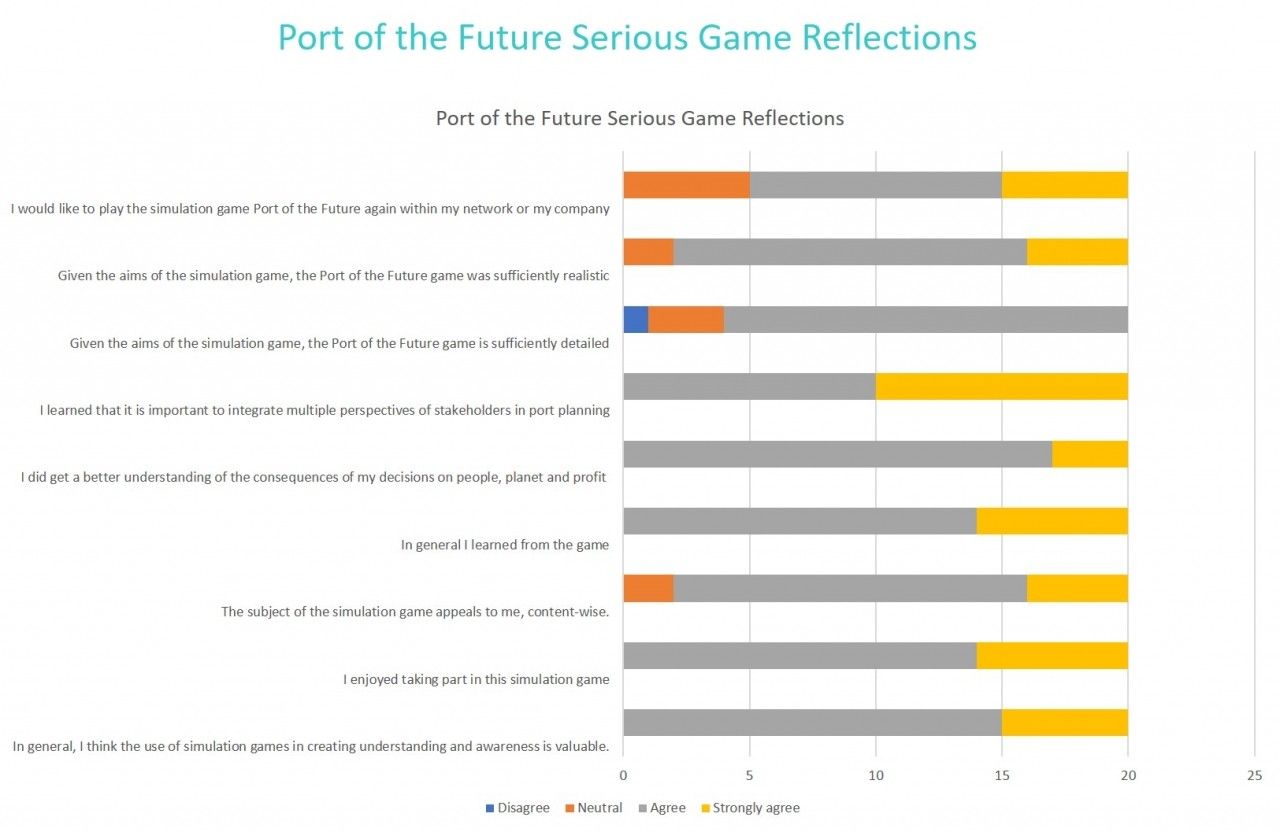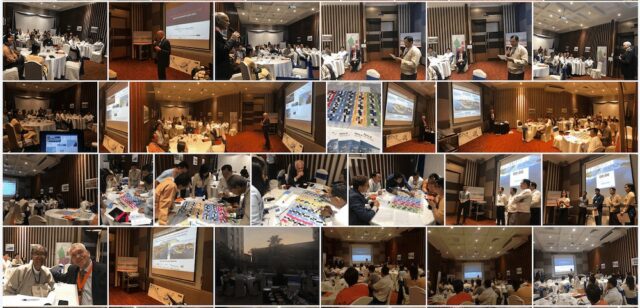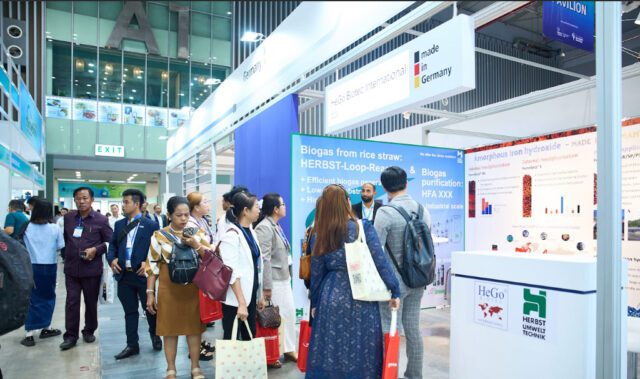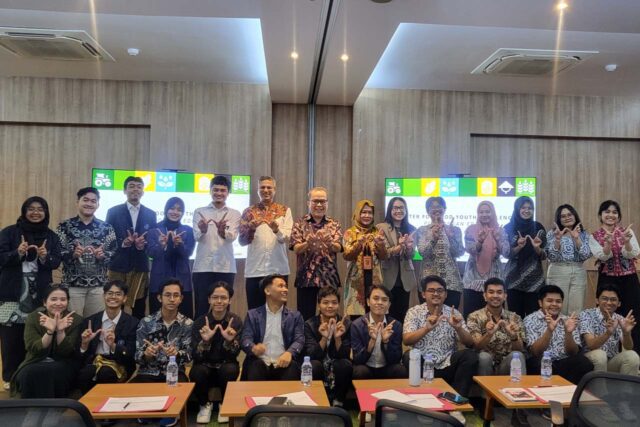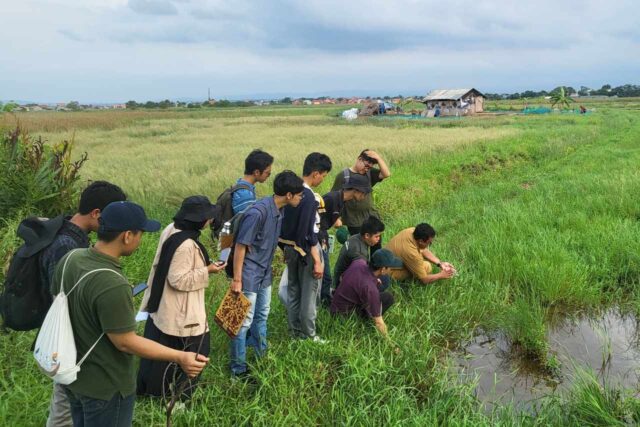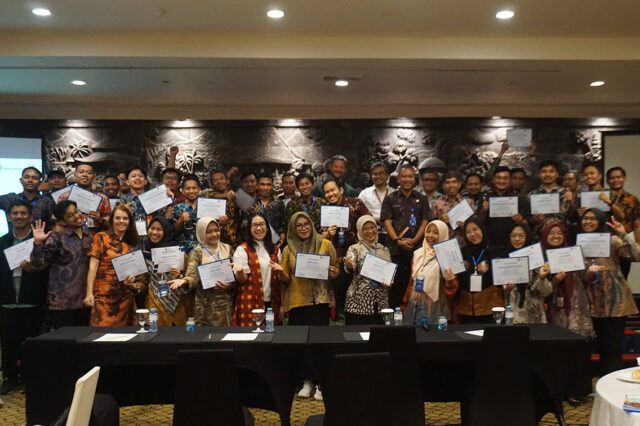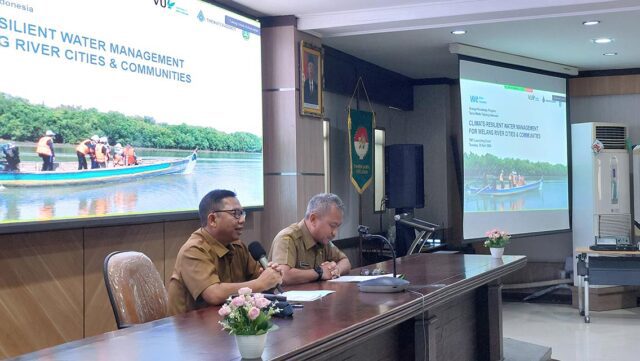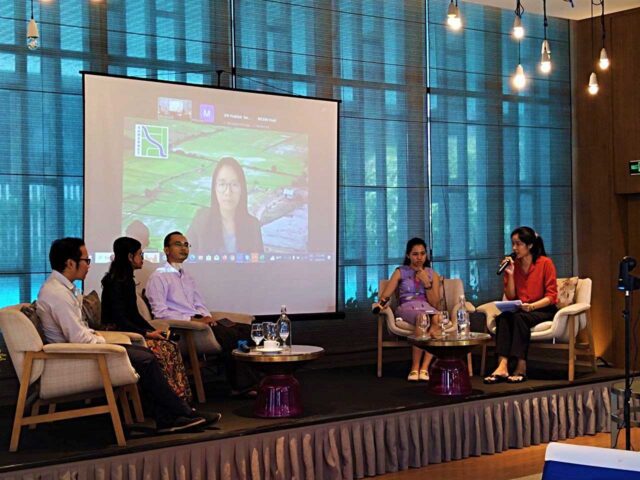Multi-stakeholder Teamwork
After the launch on the 31st of October 2018 of the Urban Water Logistics for a Greater Yangon program, its time to come together for some action and excitement. Over the last 4 months there have been many engagements around the Scoping Study for Water Logistics between representatives of the Union (Ministry of Transport and Communications (MoTC)), Yangon Regional Government (YRG), Myanmar Port Authority (MPA), Inland Water Transport (IWT), Directorate of Water Resources and Improvement of River Systems (DWIR) and the consortium of Dutch Water Logistics organizations.
This resulted in a concrete short-list of 5 Value Propositions for the Water Logistics Scoping Study:Yangon as Resilient Logistic Center of a Multimodal Transport System. One of the value propositions is related to the Mapping of stakeholder’s responsibilities/ roles and Union policies and to define a critical path (prioritizing) on all transport development related studies and plans.
One of the knowledge partners of the UWLY program is the Technical University of Delft (TU Delft), and they have developed with a team of partners the Ports of the Future Serious Game. The game captured the learning learning experiences of working with so many different stakeholders during the expansion of Port of Rotterdam. We were honored to have Prof Tiedo Vellinga (Professor Ports & Waterways at Technical University of Delft (TU Delft) and the former Director of Environment Maasvlakte 2 (Port of Rotterdam) in Yangon for a week to share his experiences (via guest lectures and as a Port Game trainer) and explain more about the local context (field-trips and dialogue sessions) in Myanmar. Prof Tiedo Vellinga inspired the participants to focus on the importance on future proofing of the port, to be nature based, value creation, sustainable (business) models and acknowledge the willingness of stakeholders to contribute.
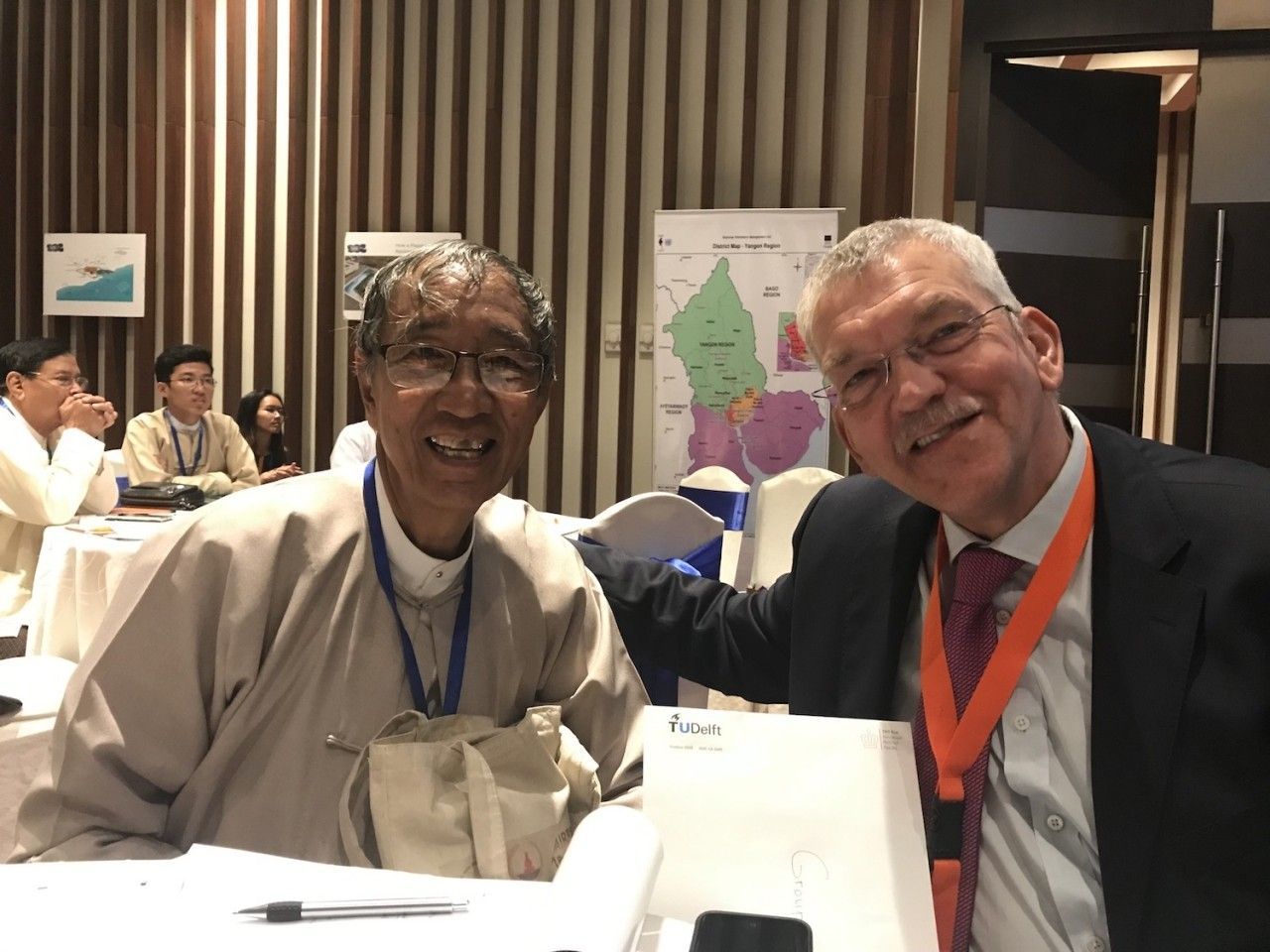
The Ports of the Future Serious Game is a really interesting stakeholder game that brings all different stakeholders around the table focusing on the expansion of a virtual port. Representatives from different departments of Yangon Region Government, (YRG), Ministry of Transport and Communications (MoTC), Myanmar Engineering Council (MEC), Yangon City Development Committee (YCDC), National Water Resources Committee (NWRC) and Myanmar Maritime University (MMU) participated actively in the game on the 27th of February in Yangon. Experts from the UWLY consortium participated (facilitated) in the game and presented on beforehand the outcomes of the first three months activities related to water logistics of Yangon.
The game features the concepts of stakeholders’ inclusive discussion, role playing, collaboration between different stakeholders and working with nature to develop a future port expansion which is sustainable and can add more value to economic development as well as to nature eco-system around port. The game measures scores of three main pillars – people, planet and profit for a sustainable port.
“The game is really interesting and very useful tool to cultivate corporative and collaborative activities”
by Author
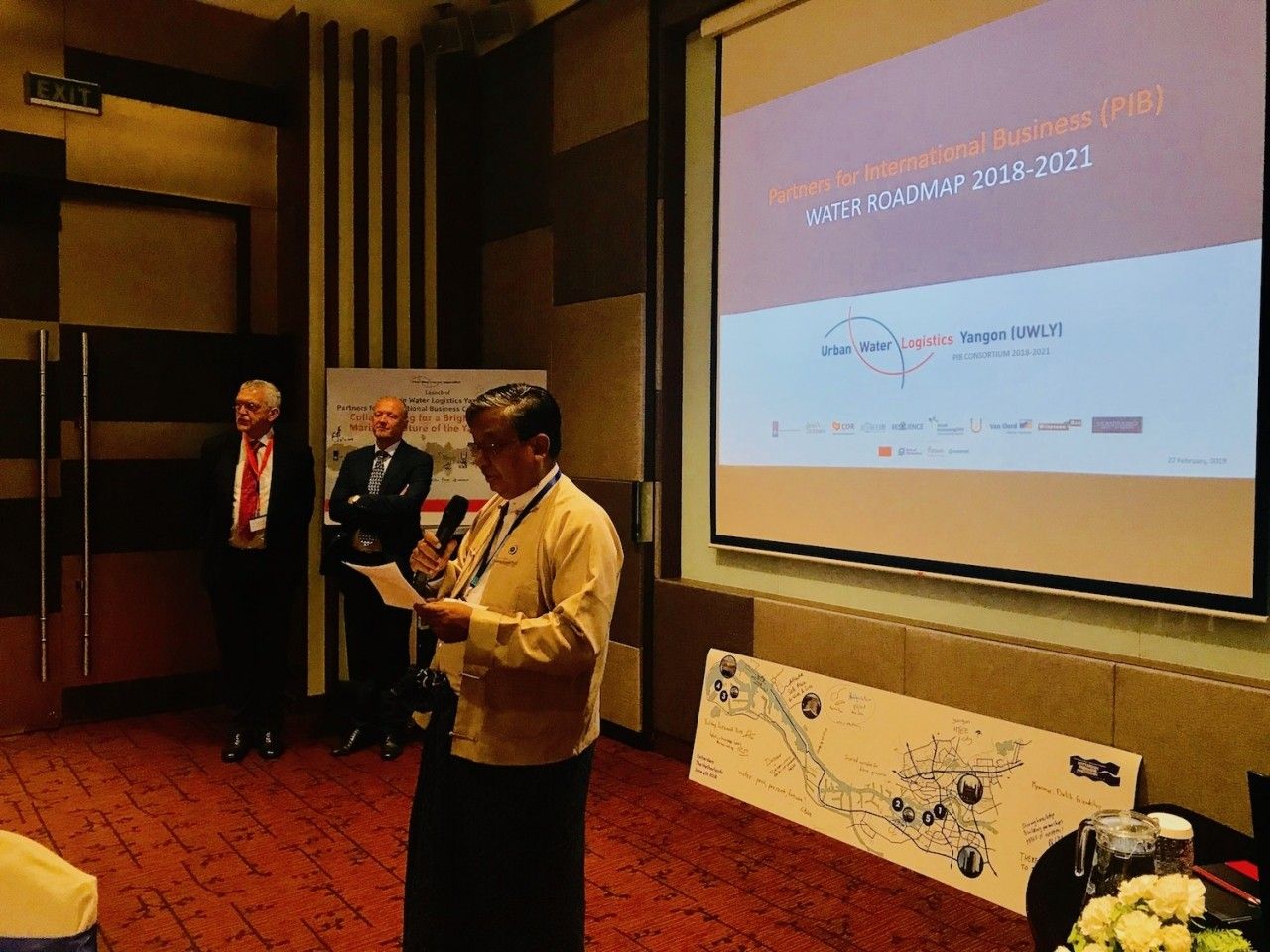
Before the game started we were honored with the following opening key-notes:
Prof Charlie Than (Honorary Advisor, MOTC) – did an opening speech on behalf of Yangon Region Government (YRG) and highlighted that “Yangon Region appreciates the support of the Dutch government and consortium under the scope of PIB program to identify challenges of Yangon and find practical solutions related to urban water and logistics of Yangon”.
Huub Buise (Deputy Ambassador, Netherlands Embassy in Myanmar) – “As we developed the PIB program together with private sector, we look forward to the next steps how we can proceed and collaborate with each other to contribute Yangon’s water and logistics developments. Today marks as an important step forward in the collaboration between Myanmar and the Netherlands”.
U Zaw Tun Lwin (General Manager, MPA) – “It is such an experience to participate in the Port of the Future Serious Game workshop which benefits a lot for MPA to learn more about international experiences of eco-system services, port expansion and the way forwards to inclusive sustainable ports”.
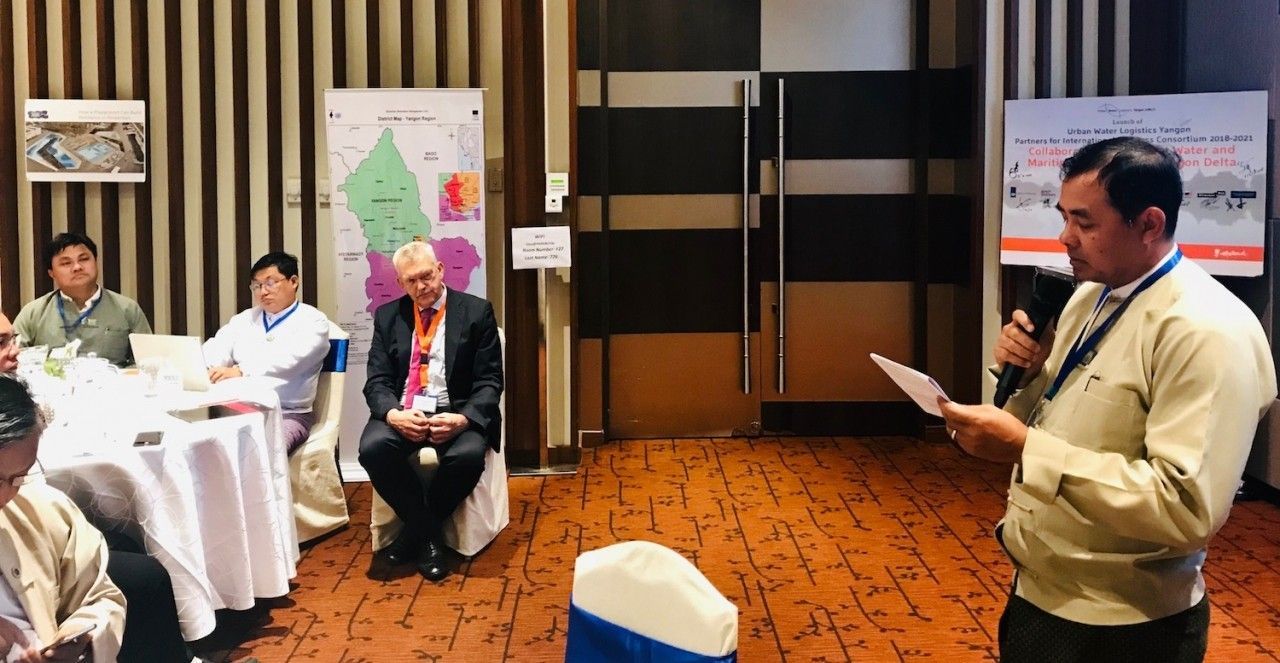
Each group of 5 participants represented as different stakeholders – government, investors, citizen, environmentalists and port authority. They developed their strategies about sustainable port expansion and discuss within their own group to choose two priorities. Then, one member from each group explain why they chose these priorities and negotiated with other groups to choose only two priorities. There can be three to four rounds of same procedures and participants must negotiate to prioritize their choices within limited budget and limited time.
After the first round, the result was in favor of people and profit. But after they realized their choices were damaging the planet, second round negotiation was tougher than the first one between stakeholders – to make the planet better. After the final discussion, the players negotiated into a more balanced between development for people, profit and still working with nature (score: People 11, Planet -1, Profit 11, Bank 15).
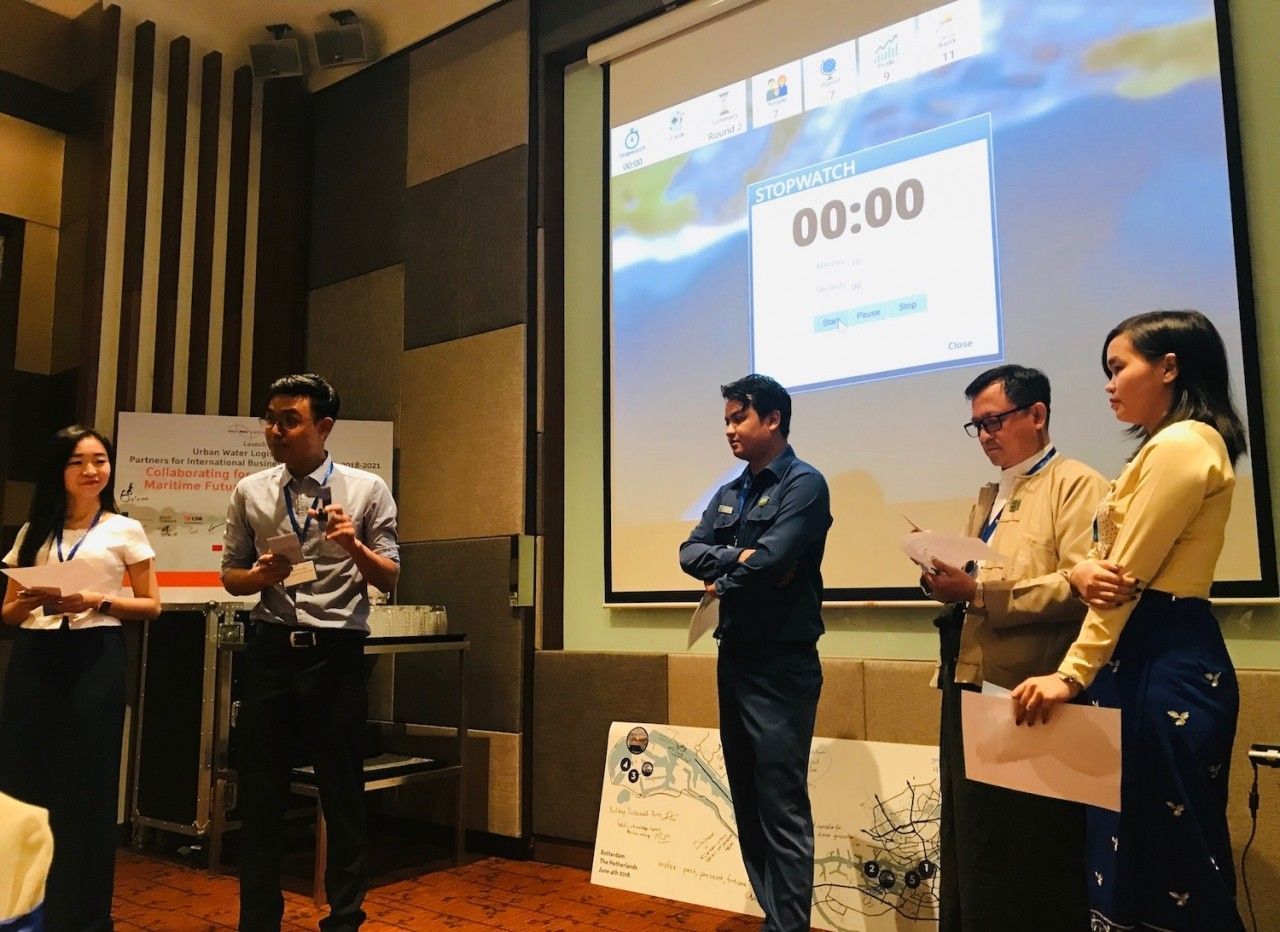
The design of the game stimulates a lot of interactions between the players representing different stakeholder groups – discussing, negotiating and collaborating with each other to develop a sustainable port that can create/add more value to People, Planet and Profit. You can find more impressions of the Game here.
Port of the Future – Serious Game is happening
Please find a summary of the Ports of the Future game reflections we received after the game. Looking forward to share more information – and work together on an inclusive sustainable future proof ports for Myanmar.
